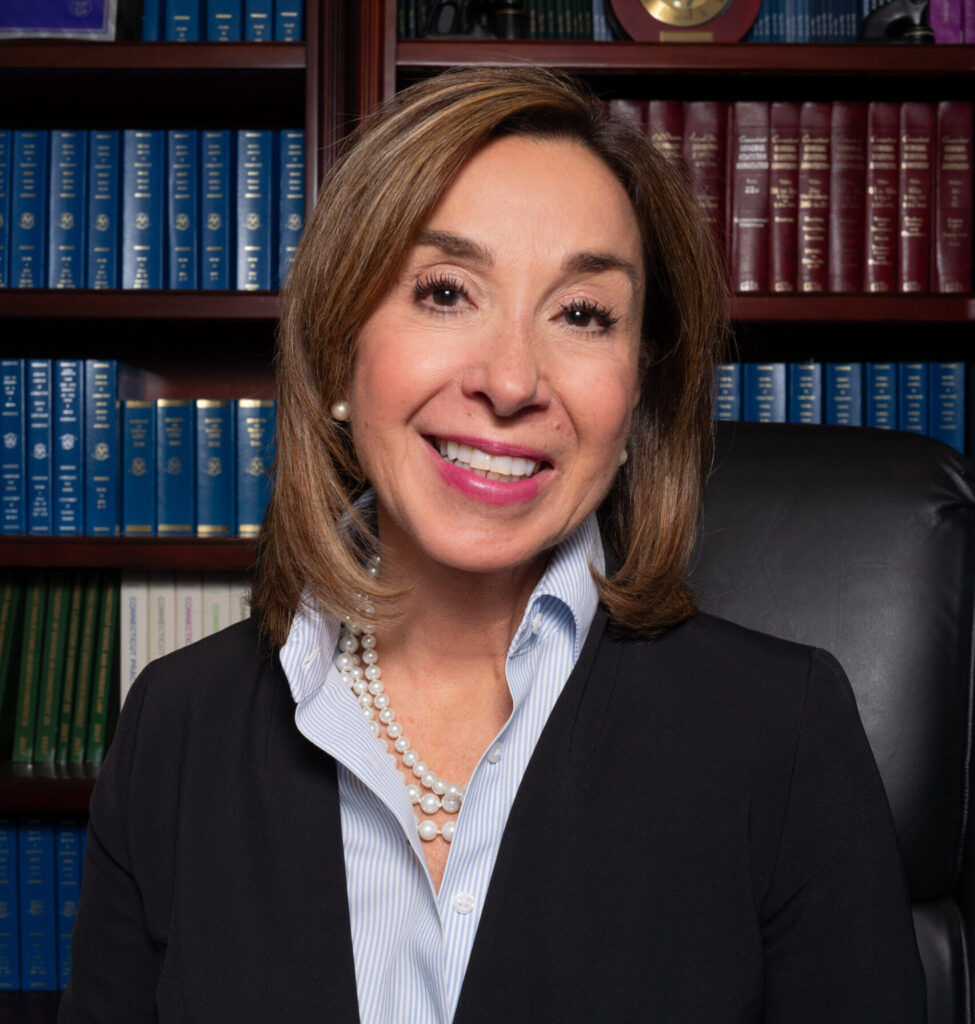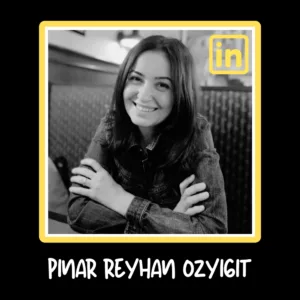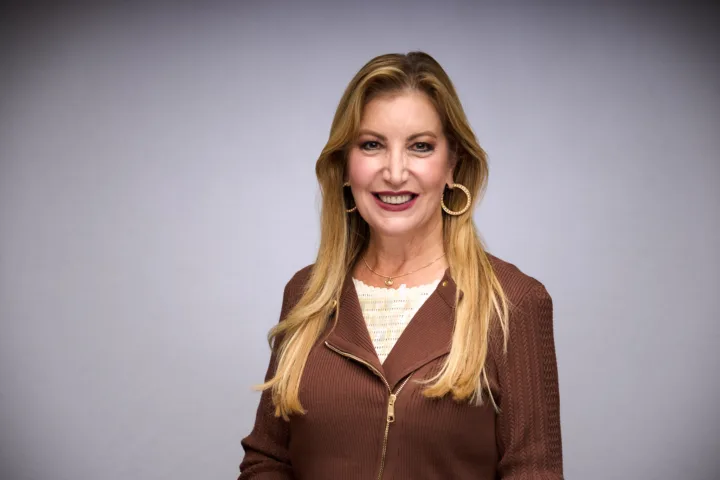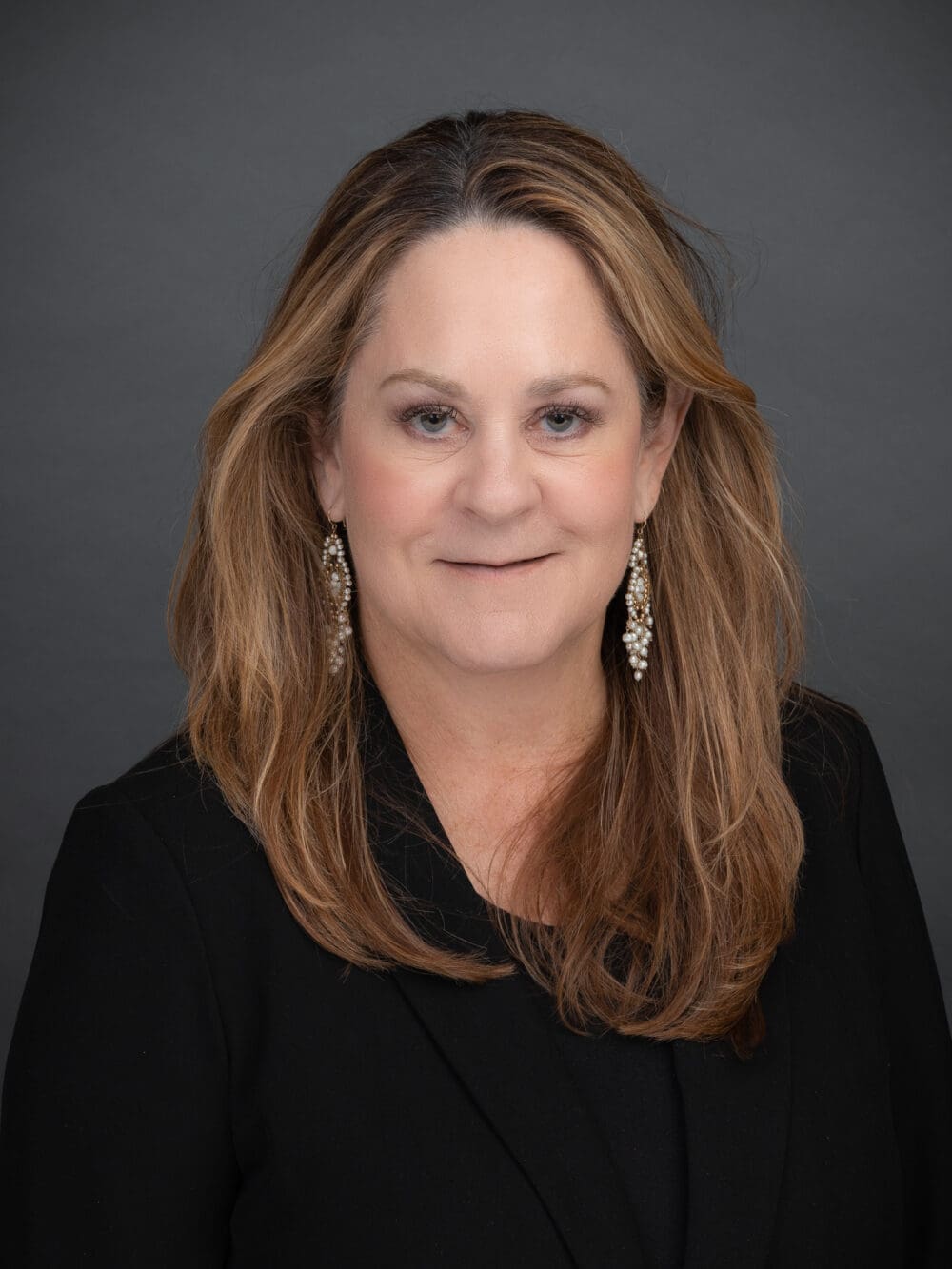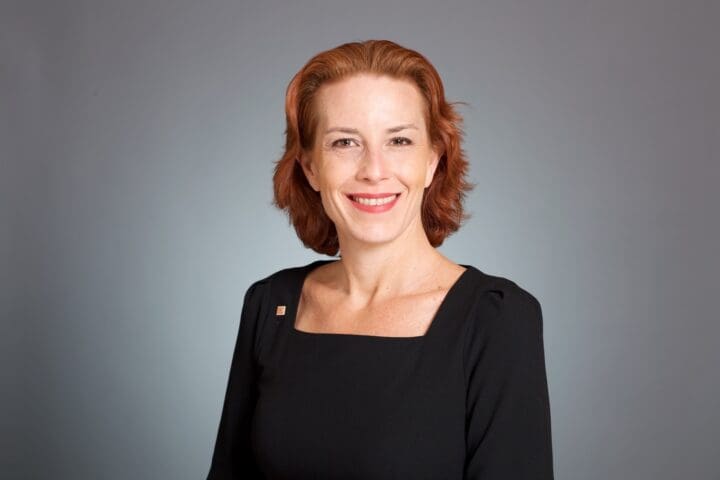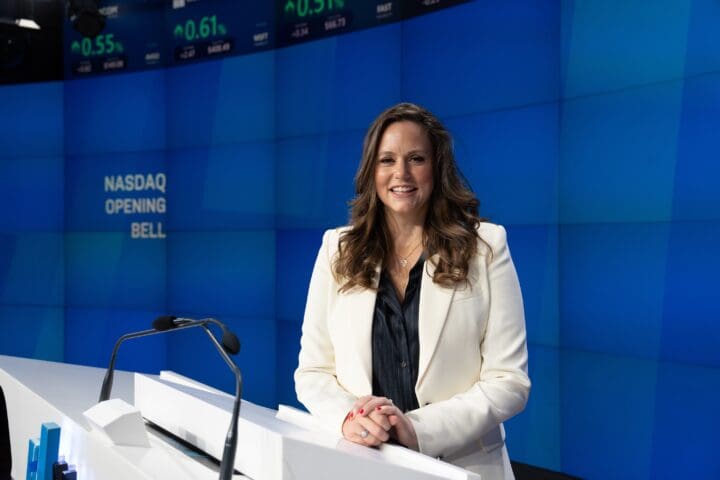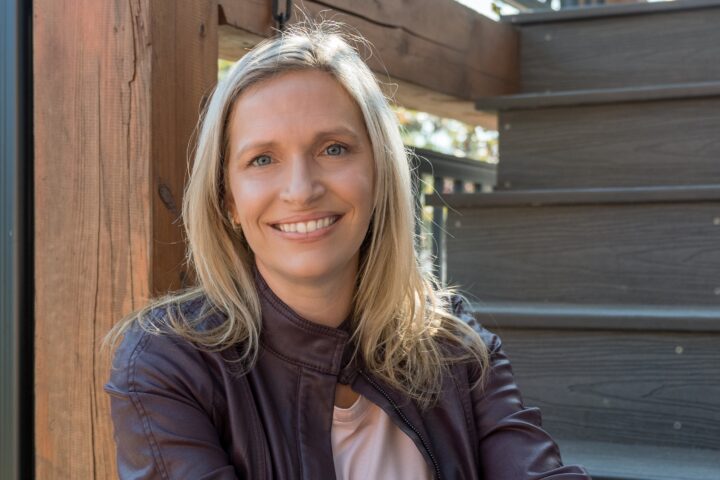From Legal Challenges to Lifelong Passions
How a Probate Judge Balances the Scales of Law and Life
My career has taught me the importance of empathy and justice in law, and as a judge, I strive to apply these lessons daily, ensuring that each decision helps pave the way for a fairer society.
Evelyn Daly, The Probate Judge of Farmington, CT
Introducing Judge Evelyn Daly, the probate judge of Farmington, Connecticut, who has woven a career marked by empathy, resilience, and a relentless pursuit of justice. Her journey from a young, politically active law student inspired by Perry Mason to a pioneering judge in the probate court is not just a professional trajectory but a personal mission to infuse the legal system with compassion and understanding.
In this exclusive interview, Judge Daly opens up about the defining moments of her career, including her impactful work on high-profile toxic tort cases and her transition to the judiciary, where she has served with distinction for over 18 years. Beyond her legal achievements, Evelyn shares insights into the challenges and rewards of managing online court sessions, where she encounters a gamut of human behaviors, from the casual to the bizarre, demonstrating her adeptness at maintaining decorum and respect in the digital age. But helping people who is in need of help, and seeing the positive impact is the only thing what motivates her.
✿ Thank you for reading!
Subscribe to be our bestie, no spam—just good vibes once a month.
Evelyn’s life outside the courtroom is as rich and engaging as her professional endeavors. A lover of the arts, an avid concert-goer, and a museum docent, she finds balance and renewal in these pursuits, which allow her to return to her judicial duties with refreshed perspective and renewed energy. Her commitment to life and family time also plays a crucial role in her life, ensuring she remains grounded amidst the demanding nature of her work.
As a mentor and champion of diversity within the legal community, Judge Evelyn Daly is fervently committed to shaping a legal environment that is both inclusive and compassionate. Her influence resonates far beyond her immediate duties, profoundly affecting the judicial landscape across not only Farmington, Plainville, and Burlington, but also within the expansive realm of the Hartford Regional Children’s Probate Court, which spans 27 towns. In her role as administration judge, she leads and mentors 11 other judges, exemplifying unparalleled dedication, professionalism, and leadership—all while embodying the essence of humanity.
Join us as she shares stories from the bench, offers insights into achieving balance between personal life and professional responsibilities, and demonstrates her relentless dedication to justice, marked by fairness and a profound human touch.
Connecticut is truly enriched by her distinguished service and compassionate leadership.
We are immensely honored to present Judge Evelyn Daly today.
Evelyn, could you share your journey as a woman-in-law?
It’s been a bit of an accidental journey, but I am thoroughly pleased with it and feel very fortunate. My fascination with law began as a child, watching Perry Mason at my grandmother’s home, which fueled my desire to pursue justice and change the world. After studying political science, I worked in politics for a while, a job that ended abruptly when my boss lost his reelection. This setback pushed me to pursue my law degree, a path that was not straightforward but ultimately fulfilling.
After giving birth to my son, the balance between personal life and a demanding career became untenable. I sought part-time work, hoping to find flexibility in a profession that was, at the time, relatively rigid about roles for women. This search was frustrating but enlightening, as it exposed the limitations within the legal profession for working mothers. It pushed me towards roles that were more adaptable, eventually steering me toward the judiciary, where I felt I could make a real difference on my own terms.
I practiced in Boston, where I faced the typical challenges of a young attorney in a large law firm, including the pervasive gender discrimination of that era. My law firm at that time had 100 partners, and only 1 of them was female.
You’ve had a significant portion of your career span across different states—California, Massachusetts, and ultimately Connecticut. Could you share with us what prompted your moves between these states and how each influenced your career?
My journey across these states was driven by both personal and professional shifts that significantly shaped my career. I began my post-college career in Massachusetts, working for U.S. Senator Edward Brook. It was an exhilarating time, bridging work between Boston and Washington, D.C. for 3 terms. However, after the senator lost his reelection, I found myself jobless and decided to move to California. That period allowed me to reflect on what I really wanted, which was to pursue a legal career, so I returned to the East Coast to prepare for and attend law school.
After law school, I practiced in Boston, where I faced the typical challenges of a young attorney in a large law firm, including the pervasive gender discrimination of that era. My law firm at that time had 100 partners, and only 1 of them was female. However, my personal life took a significant turn when I married my husband, who lived in Connecticut. The commute between Massachusetts and Connecticut was challenging, and it was vital for us to start our married life together, so I moved to Connecticut. This move required me to recalibrate my career. I became a member at the Connecticut Bar did a clerkship before transitioning to roles that leveraged my legal expertise and my growing interest in public policy and legislation. It eventually paved the way for my entry into the judiciary here in Connecticut. Each move was a step toward defining the kind of law I wanted to practice and the impact I wanted to have.
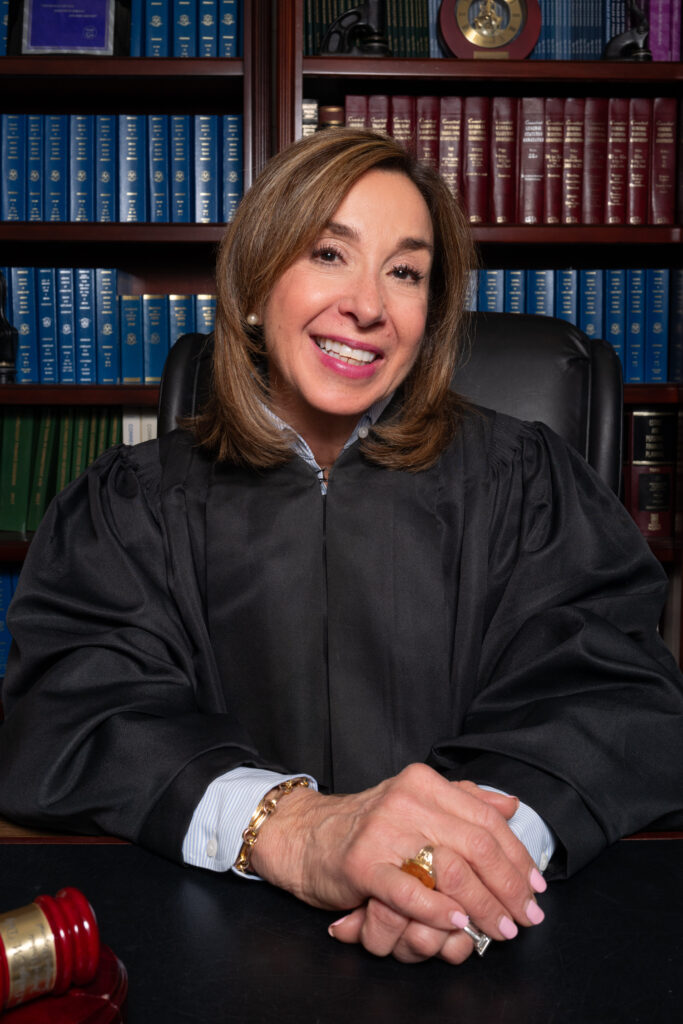
What drew you from practicing law to taking on the role of a probate judge?
My legal career was diverse, from handling toxic tort cases involving hazardous wastes to a heart-wrenching case at Aetna concerning an IUD that sterilized many women. When I sought part-time work to balance motherhood, my options were limited, reflecting the rigid work culture of the time. This struggle led me to do a job as counsel for the Connecticut legislature, a role that mixed part-time hours with intense periods of activity. The community encouraged my entry into the judiciary—although I initially declined, I eventually accepted, seeing it as a new avenue to effect change.
Could you tell us more about your experience with job-sharing? How did this partnership come about, and what impact did it have on your career and work-life balance?
Job-sharing at Aetna Life and Casualty was a pivotal experience in my career. After returning from maternity leave, I sought a part-time position to better manage my new responsibilities as a mother. The company initially agreed to a job-sharing arrangement, where I partnered with another senior counsel, Sarah Campbell, who was also a mother and interested in a reduced schedule.
The concept was innovative at the time; it allowed both of us to maintain our roles at a senior level without compromising on our professional responsibilities or our personal commitments. However, just before we were scheduled to return, the company hesitated, reflecting the corporate world’s uncertainty about such partnerships. After some persuasion, they honored their initial commitment, and the arrangement turned out to be highly successful.
This partnership not only helped us manage our workloads effectively but also set a precedent within the company. It demonstrated that flexible work arrangements could be beneficial and sustainable. The company even received accolades for being a trendsetter in work-life balance initiatives, which was gratifying. Personally, it allowed me to continue my career trajectory without sacrificing my family time, which was invaluable. This experience underscored the importance of adaptability and advocacy in achieving work-life harmony.
Probate court is often misunderstood by the public. While many associate it solely with handling wills, our role is expansive, covering everything from guardianship to immigration matters. Many still think we only deal with estates and wills, but our responsibilities are far more extensive. We handle cases that affect the core of human and civil rights, from mental health to child custody.
Can you describe a typical day in your current role?
Each day is varied and intense. Beyond handling wills and estates, we deal with cases that profoundly affect personal lives, such as ordering psychiatric commitments and facilitating adoptions. One particularly moving case involved a young man with Down Syndrome who relies on electroconvulsive therapy. Making the judicial decedents for him showed me the tangible impact of our decisions on individuals’ daily lives and well-being.
How does the probate court fit into the larger judicial system?
Probate court is often misunderstood by the public. While many associate it solely with handling wills, our role is expansive, covering everything from guardianship to immigration matters. This breadth allows us to directly touch the lives of individuals in our community, offering a more approachable face of the judicial system that can adapt quickly to societal changes.
What are some common misconceptions about the probate court that you encounter?
Many still think we only deal with estates and wills, but our responsibilities are far more extensive. We handle cases that affect the core of human and civil rights, from mental health to child custody. Explaining this to the public is an ongoing effort, as understanding the full scope of our work helps build trust and appreciation for the court system.
As we look forward, adapting to the increasing complexity of cases and maintaining the integrity and efficiency of our court are my priorities. My career has taught me the importance of empathy and justice in law, and as a judge, I strive to apply these lessons daily, ensuring that each decision helps pave the way for a fairer society.
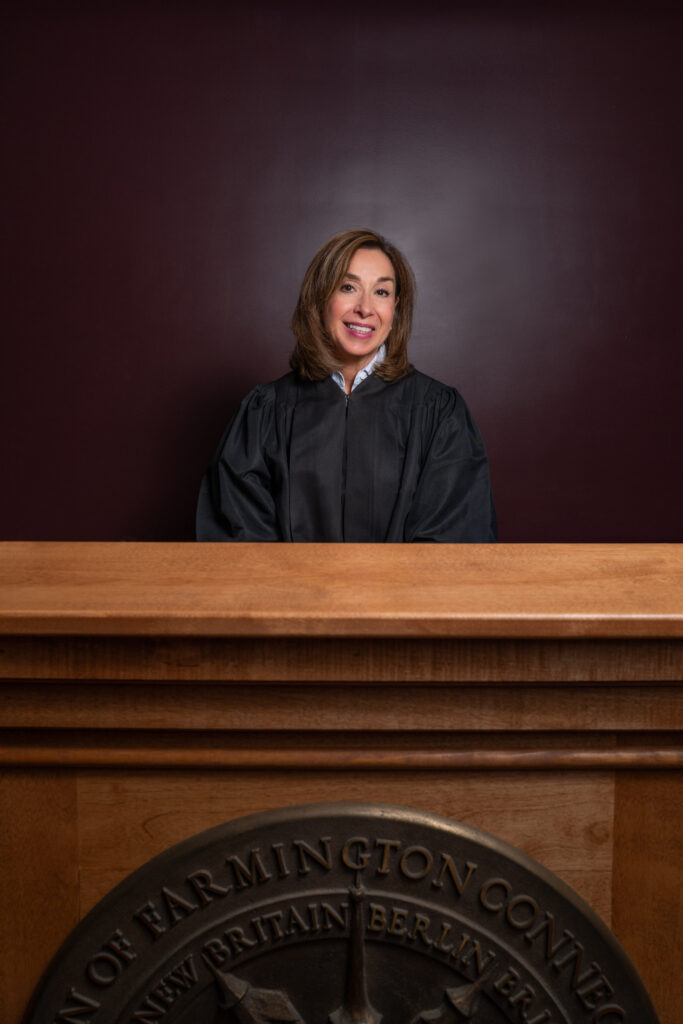
You’ve mentioned a significant case involving an IUD and Ana Life and Casualty. Can you share more about that experience and its impact on your career?
That case was a turning point for me, professionally and personally. It involved a birth control device that was known to cause sterility in women yet continued to be marketed and sold. My role was to navigate the storm of lawsuits against the manufacturer. The gravity of the harm done and the corporate responsibility involved deepened my commitment to justice and ethical practice in law. During this time, I truly understood the impact of legal decisions on people’s lives.
Speaking of impact, how important is diversity in the legal profession, and what efforts are being made to enhance it?
Diversity is crucial for delivering justice that genuinely reflects and serves the community. We’ve made strides in increasing diversity within the judiciary and legal staff but still have a long way to go. In my office, for instance, we pride ourselves on a team from varied backgrounds, which enriches our perspective and approach to the law. This diversity enhances our team dynamics and helps us better understand and address the unique situations of those who come before us.
You’ve managed a wide range of cases in probate court. Can you discuss one particularly memorable case?
One case that stands out involved a young man with severe mental health challenges who required electroconvulsive therapy to function. Witnessing his transformation was profoundly moving. It underscored the critical role of judicial decisions in improving individual lives. These cases are not just legal challenges; they are deeply human stories that stay with you and affirm the importance of our work in the probate court.
I’ve handled involved a young man suffering from severe depression and disintegrative disorder, which required regular electroconvulsive therapy to manage his symptoms. His condition was such that without this treatment, he exhibited violent behaviors and severe distress, which greatly affected his and his family’s quality of life. The court’s involvement was crucial to ensure that he received the necessary medical treatments regularly, as his guardians legally couldn’t authorize this on their own.
This case stands out because it highlights the probate court’s critical function in intersecting with medical and ethical issues, making decisions that have a direct and immediate impact on a person’s well-being. It’s a powerful reminder of the court’s role in not just interpreting laws but also applying them in ways that profoundly affect individuals’ lives.
How do you approach the challenge of balancing legal responsibilities with the emotional aspects of the cases you handle?
It’s essential to maintain a balance between upholding the law and empathizing with the human element of each case. My approach is always to listen actively, understand the full context of every situation, and consider the emotional and psychological impacts of my decisions. This empathetic approach does not undermine the legal aspects but rather enriches the decision-making process, ensuring that justice is both fair and humane.
Evelyn, you’ve mentioned handling a range of unique and challenging cases, especially with the introduction of online hearings. Could you share an example of how you’ve navigated unusual or disruptive behaviors during these hearings?
Absolutely, transitioning to online hearings has definitely brought its own set of challenges and unusual situations. The preference is still to conduct in-person hearings. Since COVID-19, virtual opportunities have come into play, which is now a challenge but also has some advantages. I’ve had hearings recently with one participant from Saudi Arabia and Japan.
For instance, I have had to manage a hearing where one of the parties is actively driving during the session. Despite the serious nature of the discussion, there he was, navigating traffic, which not only posed a safety risk but also detracted from the gravity of the proceedings. In another instance, an individual attempted to nonchalantly drinking beer while participating in the hearing. These scenarios required immediate intervention to maintain the decorum and seriousness of the court proceedings.
Handling such behaviors tactfully yet firmly is crucial. In the case of the driving individual, I had to assertively request that he pull over and park his car if he wished to continue participating. Similarly, I informed the person drinking beer that such behavior was inappropriate and unacceptable during a legal proceeding. These examples highlight the ongoing challenges of maintaining order and respect in the more casual environment of virtual hearings. It’s a fine balance to strike, ensuring that while we embrace technological advancements for convenience and accessibility, we also uphold the integrity and solemnity of the judicial process.
With your career also focusing heavily on diversity and inclusion within the legal profession, can you discuss some initiatives you’ve implemented or participated in?
I’ve been actively involved in several initiatives aimed at promoting diversity within the legal community. One such initiative was the American Bar Association’s Minority Counsel Program, which I led while at ANA. The program was designed to foster partnerships between established law firms and minority lawyers to enhance diversity within the legal profession. Additionally, within my probate court staff, I ensure we embrace diversity in hiring practices to reflect the community we serve. This has not only enriched our workplace culture but has also broadened our perspectives, which is crucial for our work in probate law.
Given your extensive experience, how do you view the role of mentorship and diversity within the legal community?
Mentorship is crucial in shaping the next generation of legal professionals. My efforts to promote diversity aren’t just about fairness and enriching the legal profession with varied perspectives that enhance our understanding and approach to justice. By mentoring young lawyers, especially from diverse backgrounds, we ensure the legal profession grows more inclusive and equipped to handle the complexities of our society. To date, I have had 72 interns, certainly a diverse group of students who have enriched my court to an enormous degree.
As we look to the future, what changes or developments do you hope to see in the legal system, particularly in probate law?
I hope to see continued progress toward making the legal system more accessible and less daunting for the general public. This includes further simplifying legal processes, enhancing public education about legal rights and procedures, and increasing the use of technology to make courts more efficient. For probate law, specifically, I anticipate a broader understanding and appreciation of its role, as it touches on some of the most personal aspects of people’s lives. I also hope for continued advancements in how we handle cases involving mental health, reflecting newer scientific understandings and treatments.
What advice would you give to young professionals aspiring to a career in law, or more specifically, in probate law?
For those considering a career in law, I emphasize the importance of resilience, empathy, and a commitment to justice. Law is not just about understanding statutes and case law; it’s about understanding people and the societies they inhabit. For those drawn to probate law, I recommend gaining a strong foundation in areas that probate courts frequently touch upon, such as elder law, estate planning, and mental health law. Additionally, developing strong interpersonal skills is crucial, as this field requires a sensitive approach to dealing with clients facing often difficult personal circumstances. Remember, a career in law can be as rewarding as it is challenging, especially when you see the tangible impact of your work on improving people’s lives.
As you look back on your career, how do you balance the demands of your professional life with personal fulfillment?
Balancing these demands has always been challenging. I believe in living a life whole of purpose and passion, which means making a tangible difference through my work while also finding time for personal growth and joy. Some activities recharge me and provide the stamina needed to face the rigorous demands of my judicial duties. They remind me that personal well-being is essential to professional effectiveness.
Outside of your demanding career, what are some hobbies or activities you enjoy to unwind and recharge?
I have a deep appreciation for culture and the arts, which plays a significant role in my personal life. I enjoy attending concerts, whether they’re classical music performances or more contemporary shows, and I frequently visit museums. The blend of history, art, and music helps me relax and find balance. Additionally, I still volunteer as a docent at Hillstead Museum whenever my schedule allows. Sharing the beauty and history of the museum with others is incredibly fulfilling.
It sounds like you have a rich life outside the courtroom. How do these activities impact your work as a judge?
Joyful activities not only provide a much-needed respite from the stress of my job but also enrich my understanding of the human experience. Art and music evoke empathy and insight, which are crucial in my role as a judge. They remind me of the beauty and complexity of human life, which parallels the complexity of the cases I handle. This broader perspective helps me approach each case with a renewed sense of purpose and understanding.
With such a full schedule, how do you manage to maintain a healthy work-life balance?
Achieving balance is a constant effort, especially in a demanding field like law. I make it a point to integrate physical activity into my routine. For instance, I walk or run a mile every morning. It’s not much, but it’s a commitment to my health that starts my day on the right foot. I also practice hot yoga, which not only keeps me physically fit but also mentally sharp. Additionally, spending quality time with my family is crucial. We often go for bike rides or have dinner together, which helps maintain our close bond. These activities ground me and ensure that I don’t lose sight of what’s important beyond my professional responsibilities.
And how about travel? Do you find time to explore new places?
Travel is another passion of mine, especially to places rich in history and culture. I’m planning a trip to France to immerse myself in the language and lifestyle there. Traveling broadens my perspective and provides a fresh outlook on life and work. It’s a way to recharge creatively and emotionally, and it gives me new ideas and inspirations that I bring back to my professional life. Each trip is an opportunity to learn something new about the world and about myself.
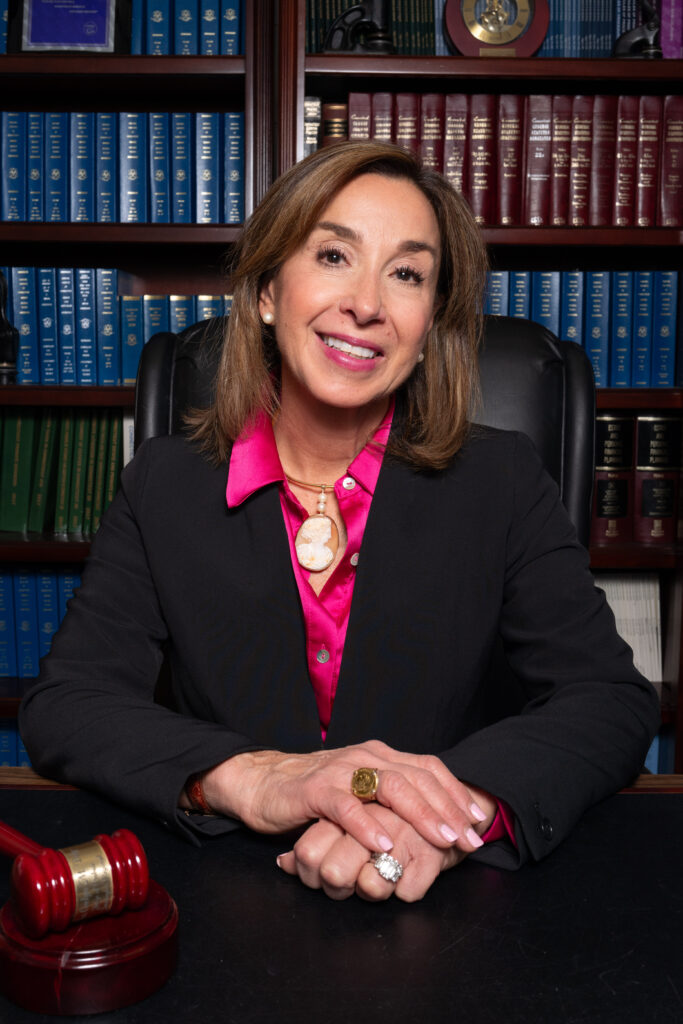
What advice would you give to women aspiring to pursue a career in the legal profession, especially in probate law?
Don’t overthink, just do it.
Go to law school and enjoy as your life unfolds.
The Lasts of Evelyn Daly
The last book/books: Lessons in Chemistry by Bonnie Garmus and The Rise and Fall at the Third Reich by William Shirer
Last TV Show or Movie: Gilmore Girls
Last travel: Paris and Nice
Favorite food: Chicken Kebab and Pilaf
Favorite dessert: Chocolate Chip Cookies
Favorite quote: Teach me to fish, and I’ll eat for a lifetime.
Favorite places in the world: Rome, Paris, Ireland, and Martha’s Vineyard
Shortcuts to Questions
✱ If you liked this article, please share it with a friend who could use inspiration.
If you have a topic in mind or a story to share anonymously or with your name, email us at [email protected]

